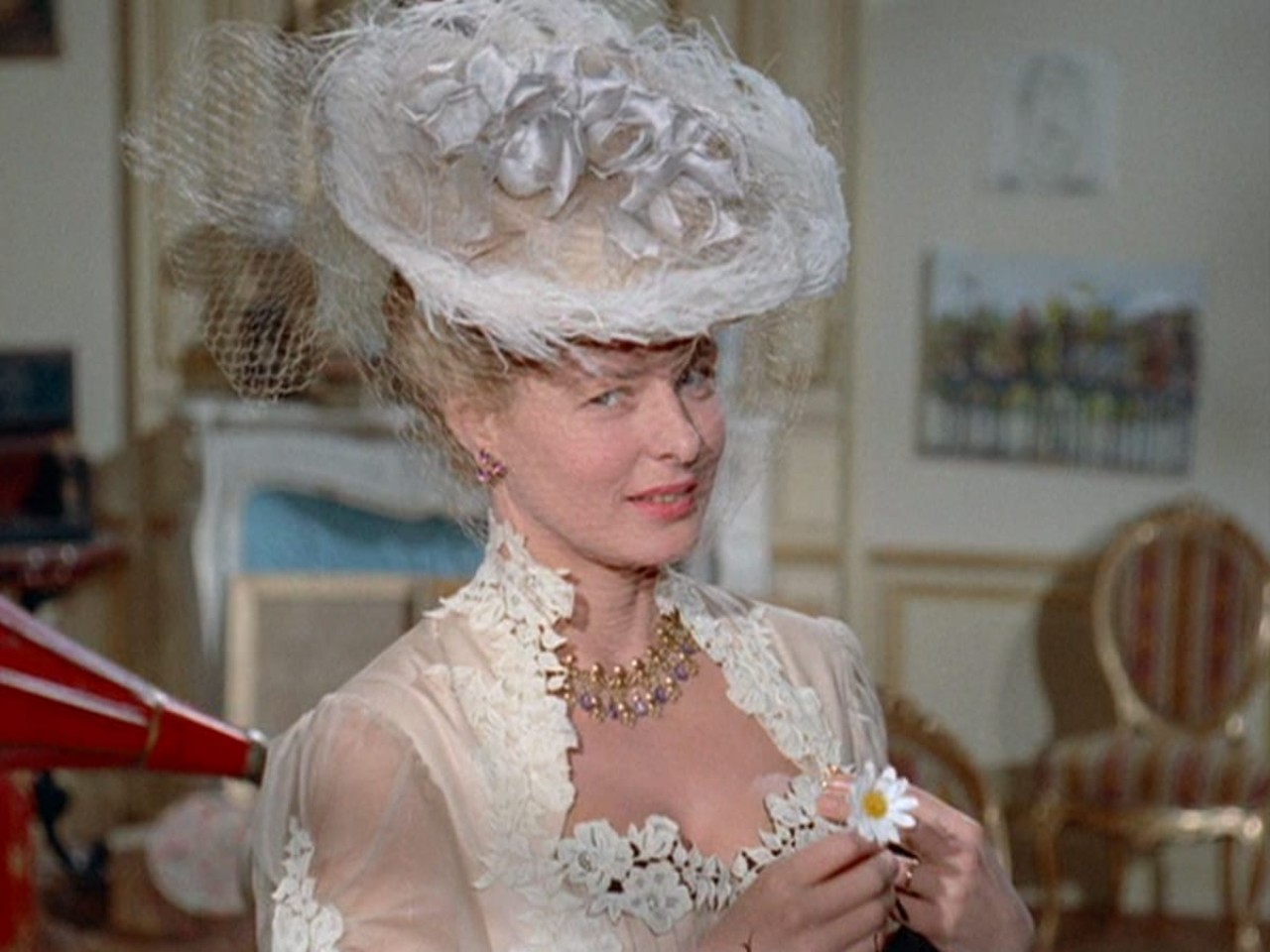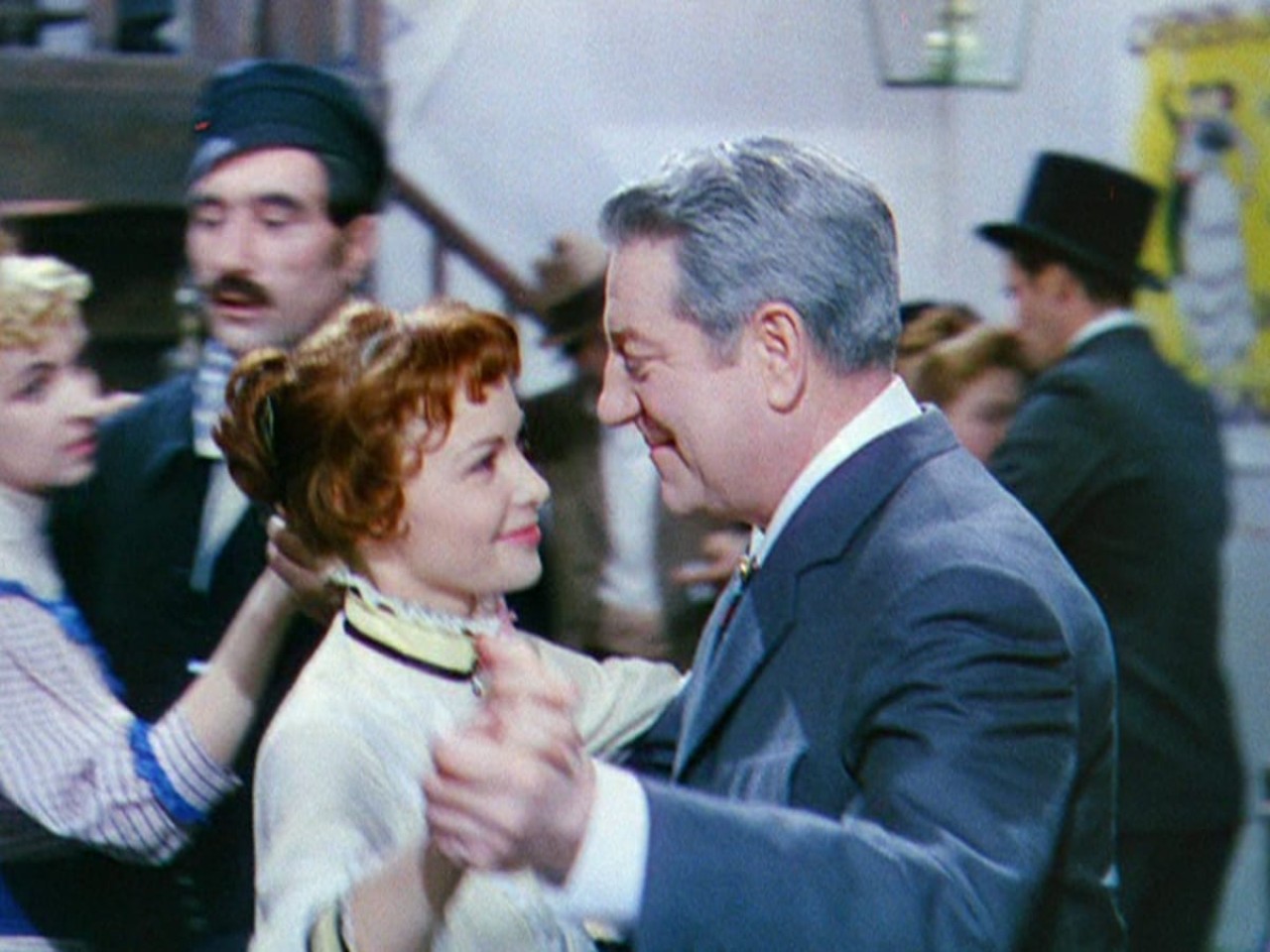Elena and Her Men

Set amid the military maneuvers and Quatorze Juillet carnivals of turn-of-the-century France, Jean Renoir’s delirious romantic comedy Elena and her Men (Elena et les hommes) stars a radiant Ingrid Bergman as a beautiful, but impoverished, Polish princess who drives men of all stations to fits of desperate love. When Elena elicits the fascination of a famous general, she finds herself at the center of romantic machinations and political scheming, with the hearts of several men—as well as the future of France—in her hands.
Special Features
- High-definition digital transfer
- Introduction to the film by director Jean Renoir
- Jean Renoir—Hollywood and Beyond: part two of a two-part 1993 BBC documentary by David Thompson, featuring reflections on Renoir from his family, friends, collaborators, and admirers
- Jean Renoir parle de son art: part three of Jacques Rivette's three-part interview with Renoir
- Collection of production stills
- PLUS: An essay by Renoir historian Christopher Faulkner
Available In
Special Features
- High-definition digital transfer
- Introduction to the film by director Jean Renoir
- Jean Renoir—Hollywood and Beyond: part two of a two-part 1993 BBC documentary by David Thompson, featuring reflections on Renoir from his family, friends, collaborators, and admirers
- Jean Renoir parle de son art: part three of Jacques Rivette's three-part interview with Renoir
- Collection of production stills
- PLUS: An essay by Renoir historian Christopher Faulkner

Cast
- Ingrid Bergman
- Princess Elena Sorokowska
- Jean Marais
- General Rollan
- Mel Ferrer
- Henri de Chevincourt
- Jean Richard
- Hector
- Juliette Gréco
- Miarka
- Pierre Bertin
- Martin-Michaud
- Dora Doll
- Rosa la Rose
- Frédéric Duvallès
- Gaudin
- Renaud Mary
- Fleury
- Jacques Morel
- Duchêne
- Albert Rémy
- Buchez
- Léo Marjane
- The street singer
- Jean Claudio
- Lionel
- Mirko Ellis
- Marbeau
- Jacques Hilling
- Lisbonne
- Jacques Jouanneau
- Eugène
- Elina Labourdette
- Paulette
- Olga Valéry
- Olga
Credits
- Director
- Jean Renoir
- Producer
- Louis Wipf
- Writers
- Jean Renoir
- Writers
- Jean Serge
- Cinematography
- Claude Renoir
- Editing
- Borys Lewin
- Production design
- Jean André
- Costume designer
- Rosine Delamare
- Sound recordist
- William Robert Sivel
- Original music by
- Joseph Kosma
















